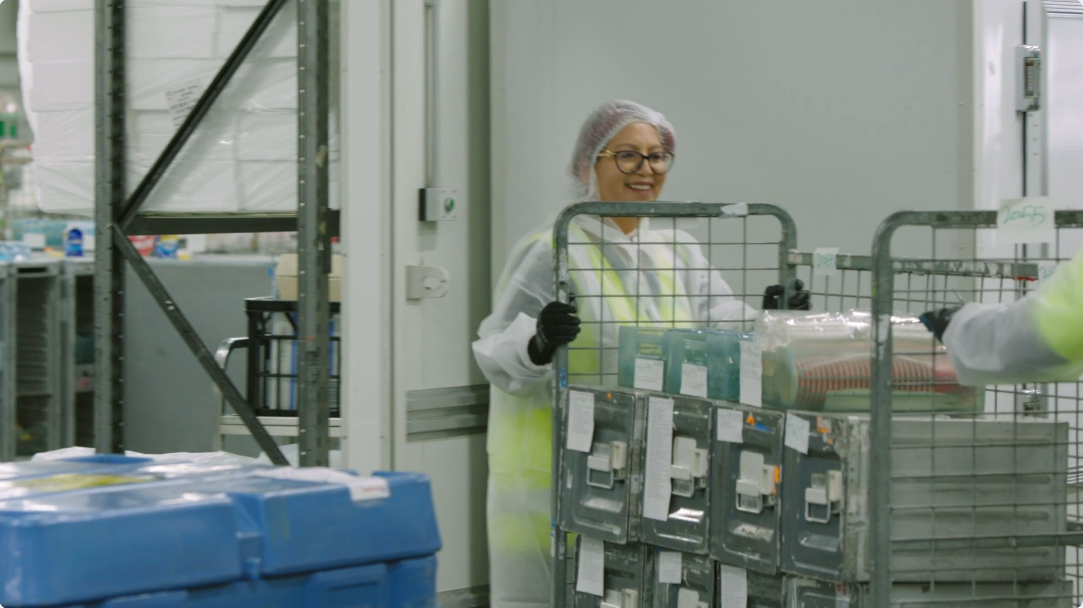While it is important to acknowledge the significant strides that have been made in equality in the workplace, and the increased prevalence of women in leadership positions is a testament to the ongoing shifts in societal attitudes, it is equally important to recognise that there is still a lot of work to be done. While the ‘glass ceiling’ may not be as shatterproof as it once was, it does still exist in many ways, for many women. Understanding this barrier is the first step to creating an environment where everyone, regardless of gender, has an equal opportunity to reach the top.
What is the glass ceiling?
Traced back to feminists in the early 1970s, the term ‘glass ceiling’ references the unseen barriers hindering women’s career progression, regardless of their qualifications or accomplishments. Understanding these barriers is the first step toward dismantling them and fostering a workplace that truly is inclusive and equal.
Let’s focus on the most common barriers to career growth women face.

Career Interruptions
Career interruptions often disproportionately affect women, creating barriers to reaching their full career potential. These interruptions, such as parental leave or caregiving responsibilities, can lead to significant gaps in a woman’s career progression. During these times away from the workplace, they may miss crucial opportunities for advancement or skill development. In addition, these interruptions to their career trajectory can also lead to a perceived loss of momentum or credibility in the eye of colleagues or leadership with many people underestimating the impact of the skills that are developed through parenting.
Domestic Violence
Domestic Violence is a grim reality for many women worldwide and is an often overlooked but significant barrier that can severely impede women from reaching their career potential. The psychological trauma and stress associated with violent, abusive, and coercive behaviour can diminish self-confidence, disrupt focus, and impede decision-making capabilities, vital traits required to progress and succeed in the professional world. Women may experience frequent absences from work due to physical injuries or court dates, leading to a potential loss of employment or missed opportunities. Not to mention, the reality that controlling behaviour of many violent partners may also lead to women being forced to quit their roles or work in roles that are beneath their skillset or aspirations leading to isolation and social stigma that further limit a woman’s networking opportunities and professional growth.
Sexual Harassment
Sexual harassment in the workplace presents a significant barrier to women’s career progression and potential. It creates a hostile environment that stifles productivity, engagement, and innovation. Women who are targets of sexual harassment may feel compelled to avoid certain projects, roles, and opportunities to avert harassment, limiting their career growth. Additionally, the emotional distress associated with such harassment can lead to increased absenteeism and decreased job performance. In instances where the harassment is not appropriately addresses, women may even opt to leave their jobs, dramatically impacting their career trajectory.
Gender bias
Gender bias and the archaic female stereotypes that are still held by much of society poses a significant barrier to women reaching their full career potential. This bias often manifests in stereotypes and preconceived notions about a woman’s capabilities and roles in the workplace, leading to discrimination in hiring, promotions, and salary decisions. Furthermore, gender bias also fosters a work environment that can undermine a woman’s confidence and ambition, limiting their engagement and growth. Additionally, the expectations of traditional gender roles also contribute to work-life balance challenges, further hindering women's career advancement.

Lack of representation
Women often lack the opportunity to find mentors who can guide their career development and offer valuable professional advice. When women are underrepresented in leadership roles, it sends a message that these positions are not for them, which can deter ambition and self-belief. Additionally, lack of mentorship from other successful women can make it more difficult for women to navigate career advancement.

Although progress has been made in recent years, there is still a great deal of work to be done to create an equitable professional environment that does not limit women from achieving the career goals. To that end, it is essential that organisations, and society recognise the long-term systematic bias and take steps to address them. Fostering an inclusive culture and embracing alternative models of business organisation to ensure that everyone has an equal opportunity for success is essential and everyone can play an important part in this by speaking up about inequity when we witness it, and by advocating for more equitable working conditions in our own workplaces.
Why Chandler Macleod?
Chandler Macleod has a strong Diversity, Equity, Inclusion, and Belonging plan across all aspects of the business, and we have been recognised by our industry body, RCSA Australia and New Zealand, as a winner in the Excellence in Diversity, Equity, Inclusion and Belonging category in the 2023 Industry Awards.
With our history as Australia’s first business psychology firm, the ability to assess your candidate and employee potential is at the heart of what we do, and we treasure the value this can add to your business over the longer term.

Our commitment to diversity goes beyond the interview and reference checks and every consultant at Chandler Macleod is BestFit Accredited which helps them predict and understand candidate behaviour through BestFit Assessments such as such as Helix Personality Assessment. By understanding your needs and the requirements of the role, our consultants use our BestFit Assessment tools to provide you with confidence in your hiring by delving deeper into the candidate's psyche.
Beyond the recruiting stage, Chandler Macleod offers consulting solutions to ensure that diversity and inclusion extends into your business beyond the hiring process. Chandler Macleod Consulting delves into understanding your employees’ lived experiences. By teaming up with our human and organisational behaviour experts you can help your employees and business achieve their full potential.
Want to know more?
Find out more about the services Chandler Macleod offers to clients, or simply fill in our contact form and we will have the right person contact you.


Our specialties
Our Industries
Our offices
More from us
Chandler Macleod acknowledges the Traditional Owners of Country. We pay our respects to the Aboriginal and Torres Strait Islander cultures, and to elders past and present, whose land we stand upon today.
© Chandler Macleod 2025 All rights reserved Sitemap











